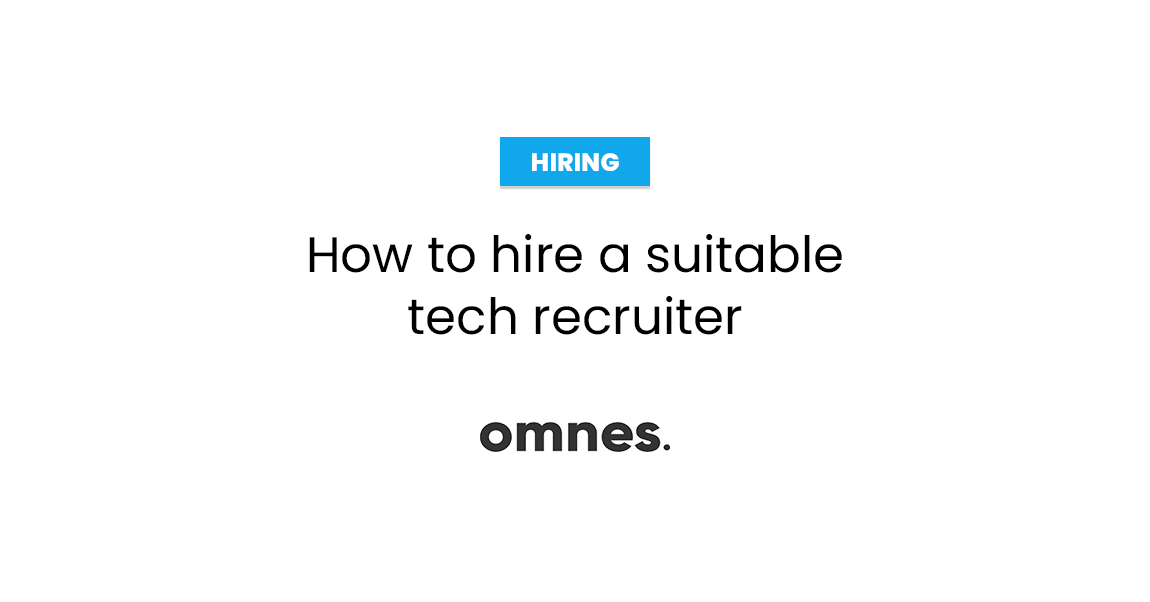Hiring
How to hire a suitable tech recruiter

You don’t have to be a recruiting expert or a hiring master mind to hire tech recruiter. Of course, there are certain rules and requirements that need to be obeyed and fulfilled in order to have a fully functional and above all motivated team. Welcoming new members aboard can get surprisingly difficult sometimes (even if you followed all the instruction and your instincts too).
The good news is that chances of having hiring doubts and problems can certainly be minimised (let’s not be pretentious and speak of completely eliminating these odds, at least for now). Good HR strategy can substitute the usage of crystal ball and help you spot potential problems before they actually occur.
And you’d need the right staff to create a successful staffing strategy. There’s a whole set of rules and distinctions when it comes to recruiters too.
The Current State of Tech Recruiting in 2025
AI-related expertise like PyTorch and TensorFlow are among the fastest-growing skills with over 40% year-over-year increases in demand, yet traditional recruiters struggle to distinguish between a React developer who’s only worked with class components versus one who understands your hooks-heavy codebase.
Given the current market shift toward skills-based hiring, where 30% of job posts no longer require a professional degree, your recruiter needs to assess technical competency beyond keyword matching.
What Most Companies Miss About Tech Recruiter Requirements
Technical Depth Over Generic Experience
The shift toward microservices architecture means you need a recruiter who understands that Docker/Kubernetes experience isn’t just general containerization knowledge. With 38% of HR leaders having implemented AI solutions to improve process efficiency, your ideal recruiter should leverage these tools while maintaining the technical judgment to evaluate candidates properly.
Market-Informed Decision Making
Organizations using people analytics are 2.5 times more likely to make faster hiring decisions. Your recruiter should be tracking these metrics:
- Quality of hire for specific tech stacks
- Time-to-hire for senior versus mid-level developers
- Offer acceptance rates by role complexity
- Technical assessment pass rates by sourcing channel
Essential Capabilities for Your Next Tech Recruiter
1. Technical Fluency That Matters
While most recruitment focuses on resume screening, we’ve moved beyond this to evaluating how candidates think through technical problems. Your recruiter needs to understand:
- The difference between full-stack developers and specialists for your specific architecture
- Why Terraform experience is non-negotiable for your DevOps role versus general infrastructure-as-code knowledge
- How to assess whether a backend developer’s microservices experience translates to your event-driven systems
2. Data-Driven Sourcing Strategies
73% of hiring managers report that proper data analysis improves hiring outcomes. Your tech recruiter should be comfortable with recruitment analytics tools and able to interpret metrics that matter for technical roles.
Red Flag: A recruiter who relies on volume over precision. The traditional approach of sending 20 CVs hoping one sticks doesn’t work in today’s competitive tech market.
3. Understanding Current Tech Hiring Trends
AI and Emerging Technologies: 60% of U.S. engineering leaders plan to hire AI engineers in 2025, up from 35% last year. Your recruiter needs to understand how these roles differ from traditional software engineering positions.
Remote-First Adaptation: Remote-first culture has changed how we evaluate collaboration skills in backend developers. Your recruiter should assess async communication abilities alongside technical skills.
Skills-Based Assessment: Companies using skill-based hiring see a 40% reduction in time-to-hire. Your recruiter needs experience with practical technical assessments beyond degree requirements.
Interview Framework for Evaluating Tech Recruiters
Technical Knowledge Assessment
- “Walk me through how you’d evaluate a senior React developer for our Next.js migration project”
- “What questions would you ask to assess DevOps experience for Kubernetes cluster management in AWS?”
- “How do you differentiate between data engineers and data scientists when sourcing for analytics roles?”
Market Intelligence Questions
- “What compensation benchmarks are you seeing for cybersecurity professionals with security clearances?”
- “How has the AI revolution changed frontend team requirements beyond traditional React patterns?”
- “What’s driving the current shortage of platform engineers versus traditional DevOps roles?”
Process and Metrics Focus
- “How do you measure quality of hire for technical positions?”
- “What’s your approach to reducing unconscious bias in technical screening?”
- “Walk me through your candidate experience optimization process”
The Cost of Getting This Wrong
Hiring the wrong tech recruiter doesn’t just slow down your hiring—it damages your employer brand in the tech community. 69% of recruiting specialists believe that soft skills are as critical as hard skills, but without technical depth, your recruiter can’t assess the communication skills that matter for your specific team dynamics.
Consider the compound effect: a recruiter who doesn’t understand your technical requirements will source candidates who don’t pass your technical interviews, extending time-to-hire and potentially losing strong candidates to competitors who move faster.
Beyond Traditional Recruitment: Strategic Partnership Approach
Here’s what we’re seeing with successful tech companies: they’re treating recruitment as a strategic function that requires both technical insight and market intelligence. The best tech recruiters act as consultants who can advise on role definitions, market positioning, and competitive compensation analysis.
What this looks like in practice:
- Quarterly market analysis for your specific tech stack and geographic focus
- Competitive intelligence on how similar companies structure technical roles
- Proactive candidate pipeline development for anticipated hiring needs
- Technical interview process optimization based on role-specific requirements
Making the Right Choice
The difference between a standard recruiter and a specialized tech recruiting partner often determines whether you build the team that scales your product or struggle with technical debt from poor hiring decisions.
If you’re scaling your engineering organization and need recruiters who understand the nuances of modern tech stacks, let’s discuss whether your current approach matches the complexity of today’s technical hiring landscape.
Ready to work with tech recruiters who speak your language? Our recruitment process outsourcing model combines deep technical expertise with proven hiring methodologies. Learn more about our specialized approach to tech talent acquisition.